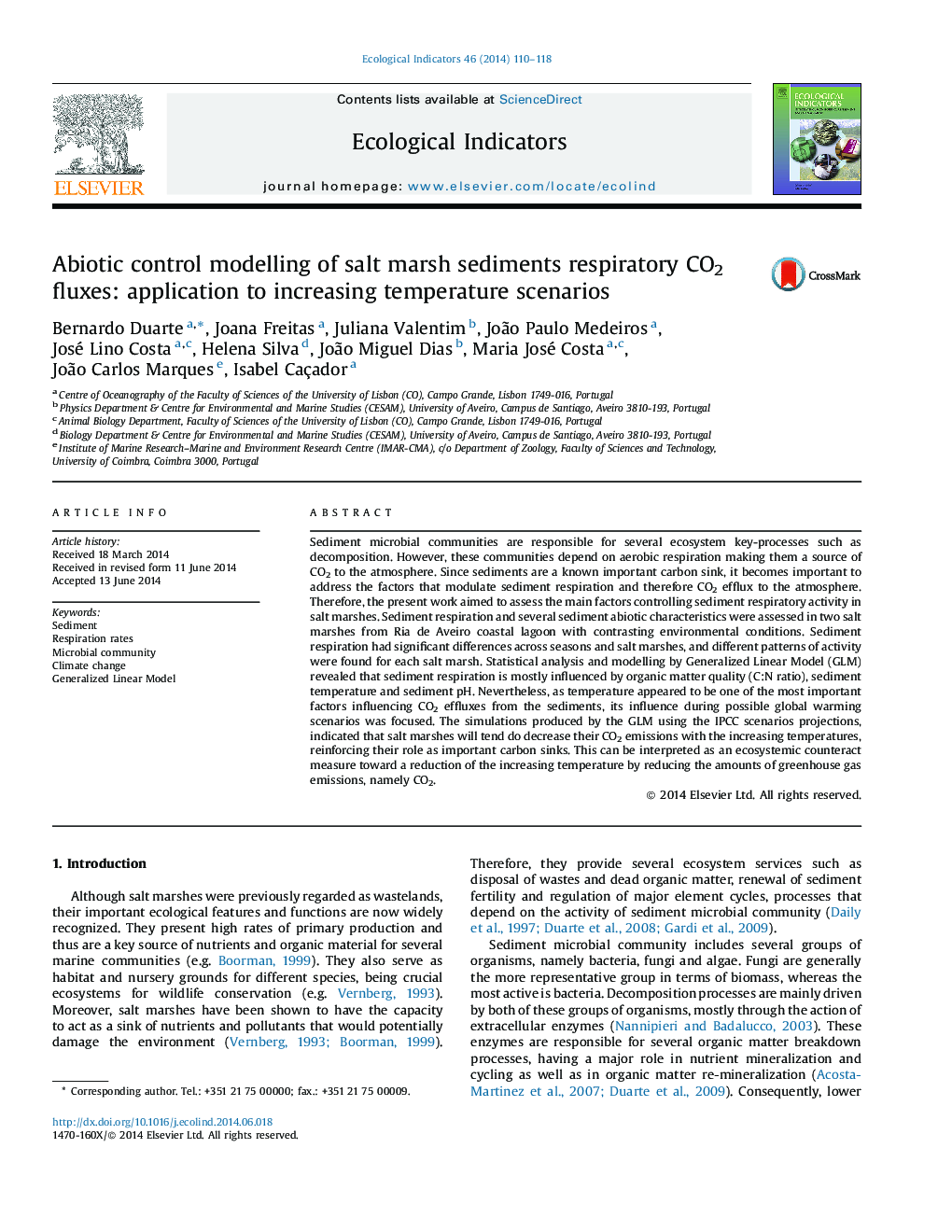| Article ID | Journal | Published Year | Pages | File Type |
|---|---|---|---|---|
| 6294840 | Ecological Indicators | 2014 | 9 Pages |
Abstract
Sediment microbial communities are responsible for several ecosystem key-processes such as decomposition. However, these communities depend on aerobic respiration making them a source of CO2 to the atmosphere. Since sediments are a known important carbon sink, it becomes important to address the factors that modulate sediment respiration and therefore CO2 efflux to the atmosphere. Therefore, the present work aimed to assess the main factors controlling sediment respiratory activity in salt marshes. Sediment respiration and several sediment abiotic characteristics were assessed in two salt marshes from Ria de Aveiro coastal lagoon with contrasting environmental conditions. Sediment respiration had significant differences across seasons and salt marshes, and different patterns of activity were found for each salt marsh. Statistical analysis and modelling by Generalized Linear Model (GLM) revealed that sediment respiration is mostly influenced by organic matter quality (C:N ratio), sediment temperature and sediment pH. Nevertheless, as temperature appeared to be one of the most important factors influencing CO2 effluxes from the sediments, its influence during possible global warming scenarios was focused. The simulations produced by the GLM using the IPCC scenarios projections, indicated that salt marshes will tend do decrease their CO2 emissions with the increasing temperatures, reinforcing their role as important carbon sinks. This can be interpreted as an ecosystemic counteract measure toward a reduction of the increasing temperature by reducing the amounts of greenhouse gas emissions, namely CO2.
Related Topics
Life Sciences
Agricultural and Biological Sciences
Ecology, Evolution, Behavior and Systematics
Authors
Bernardo Duarte, Joana Freitas, Juliana Valentim, João Paulo Medeiros, José Lino Costa, Helena Silva, João Miguel Dias, Maria José Costa, João Carlos Marques, Isabel Caçador,
